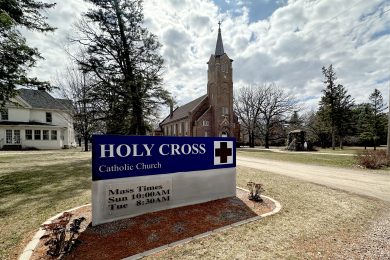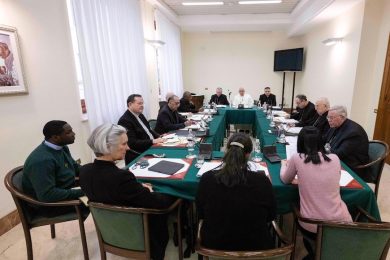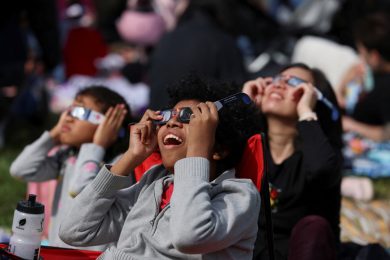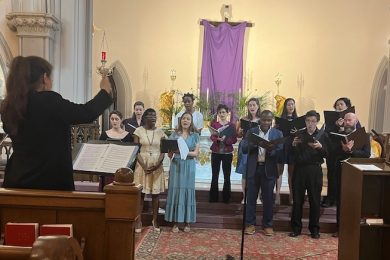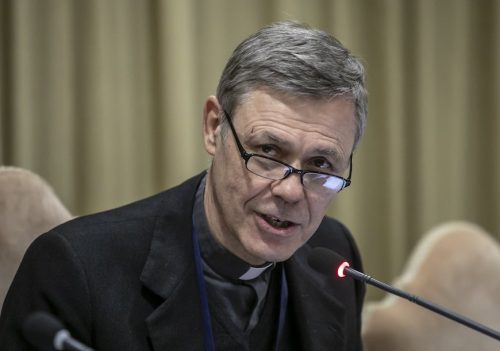By Father Carlo Casalone, SJ | Catholic News Service
The first fact highlighted during this pandemic is that we are all interdependent. This is true for both people and nations. By wearing a mask, I protect not only my health, but also that of the people around me.
And the same goes for the vaccine: By protecting myself, I also protect others, both because I reduce the spread of the virus, and because by not getting sick, I avoid overloading health services, which are already under strain.
“We are all in the same boat,” Pope Francis reminded us on March 27, 2020, in his homily in a deserted St. Peter’s square. We could perhaps point out that we are all in the same storm but not in the same boat. There are stronger boats and there are more fragile ones. We also see that sometimes those who are in the same boat try to throw others off it.
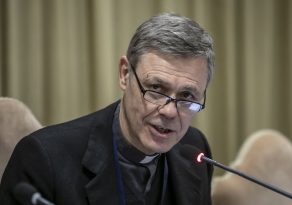
Competition can tempt us to overcome our difficulties at the expense of others. We can see that in the distribution of vaccines, where 53% of the doses were hoarded by nations representing 14% of the world population.
The vaccine is a universal good to be distributed equally. Certain people who are more at risk should be vaccinated in all nations. And not only richer nations should be able to have all of their people vaccinated. This is a goal of justice on a universal level.
The Vatican COVID-19 Commission is working on it too, on a mandate from the pope, in collaboration with all available governments and international organizations.
The transition from de facto interdependence to solidarity regarded as a deliberate choice, in which freedom becomes responsibility, is by no means automatic. It is the result of a conversion: an awareness — through the pandemic we are experiencing — that urges us to be in solidarity with others.
Suffering in Europe and North America can shake us because it is similar to what usually happens to other poorer populations.
Normally the number of deaths from malaria and tuberculosis is more than 1 million each year. Touched so deeply by such a loss, we may put ourselves in the shoes of others. Will we be able to become more compassionate and capable of using our inner energies or forces in the logic of mutual help?
Here then is the meaning that this Lent can take: a time of conversion from de facto interdependence to responsibly desired solidarity relationships.
We often express this kind of relationship with the terminology of brotherhood, as the pope did with the encyclical “Fratelli Tutti.” That is a language that has a profound evocative force.
But it is also necessary to avoid possible naivety: The biblical and mythological stories, as well as history, show us that fraternity is a place of conflicts and antagonisms. Let’s consider for instance Cain’s murder of Abel, the struggles between Jacob and Esau starting from the womb and the exhausting attempts of Joseph to mend relationships torn by envy and violence.
Jesus teaches us the way of reconciliation and fraternity by experiencing the test of conflict. He overcame violence not by returning the evil received, but by carrying it upon himself.
He was able to do it because he trusted the Father, recognizing in him an ability to give life, which is stronger and deeper than fear, and marks the relationship between siblings from the very beginning.
Our antagonism arises from the fear that the Father is not able to welcome everyone with the same benevolence: So we believe that there is a single place that allows life, and not a single place for every creature prepared for all of us in the Father’s house (Jn 14:2).
Therefore, knowing how to build a universal brotherhood requires conversion in our relationship with God, asking him to enable us to trust in his ability to prepare a place for everyone. Only in this way will we be able to overcome the rivalry that is a sign of distrust in the Father.
How? With prayer, helping one another, building fragments of fraternity that can gradually expand to become fraternity for all, a universal brotherhood.
Jesuit Father Carlo Casalone is a member of the Scientific Section of the Pontifical Academy for Life.



